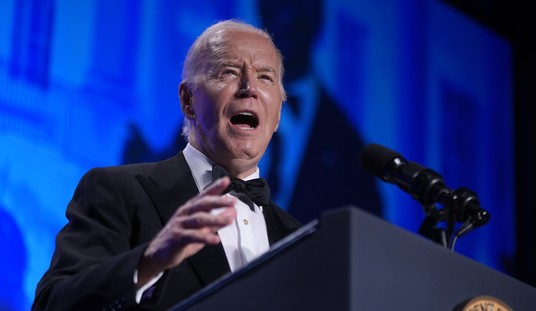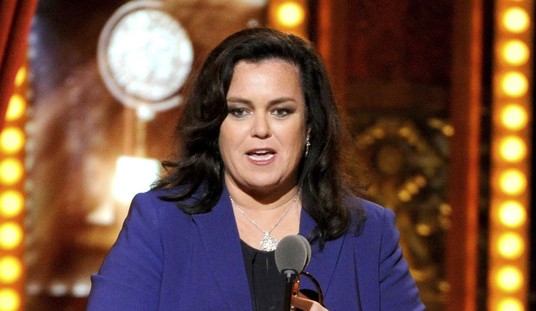Talk radio host Rush Limbaugh frequently told his audience—of over 62 million weekly listeners—that his “talent” was “on loan from God.” Limbaugh’s confidence in his innate gifts—and regular expression of gratitude to his Creator—is his most inspiring legacy.
Rush made you feel good about yourself; good about America; and hopeful for the future. Aptly, he also played feel-good bumper music. Two weeks before my wedding last summer, my father and I remained undecided on our Father-Daughter Dance song. A lightbulb went off as I tuned to The Rush Limbaugh Show and heard his bumper: My City Was Gone by The Pretenders.
I knew I hit the jackpot when I suggested the song to my Dad—a loyal Rush listener since 1988—and saw his eyes light up. How special to dance to Rush’s bumper with one of his greatest fans while Rush was still alive!
I will deeply miss Rush’s voice. I’ll miss his articulate, logical and optimistic perspective and his dry humor—including impeccable impersonations of pompous politicians that put Saturday Night Live to shame.
Rush’s appeal was inseverable from his uncanny ability to succinctly verbalize the thoughts of millions of ordinary Americans. He said what we secretly wanted to say out loud—and said it better than we could. With wit. With confidence. With passion.
Rush regularly pummeled politicians with one fell swoop of his tongue. The Mayor of Realville, as he called himself, had no reverence for snobs of The Swamp. Rush deftly reminded his audience that we are in charge; we are the boss of the so-called “representatives” we send to Washington, D.C. who make decisions on our dime and send our children to war while they recline in leather armchairs.
Recommended
“Dingy Harry” (Harry Reid), “Turtle” (Mitch McConnell), and “Fredo” (Chris Cuomo) are a few of the droll names Rush coined for politicians he considered dirty, cowardly or ignorant respectively. Rush also playfully used other people’s nicknames, like “Hildebeest” (the Obamas invented that pejorative for a certain Clinton).
Diversity is a trendy goal these days that is often preached and rarely achieved. Rush exemplified and practiced intellectual diversity by inviting over 62 million Americans who rarely find themselves or their ideas represented in popular culture to be heard—loud and clear—for three hours a day, five days a week for over 32 years. And we loved him for it.
Children, women and racial minorities were frequent callers and listeners to The Rush Limbaugh Show. For example, 13-year-old Olivia from San Antonio who called to tell Rush that she and her family took a seven-week road trip—and visited every historical landmark in his Rush Revere American history book series.
Rush’s legacy shows us how popular and successful the truth can be. It shows us that the truth resonates with Americans—and that we should never feel alone for believing in personal freedom. Indeed, Rush’s successful program—based on conservative ideology—is neither historic nor surprising.
Long before Rush, the Most Reverend Venerable Fulton J. Sheen enjoyed 32-plus years of on-air success with conservative television and radio programs from 1930-1968. The two-time Emmy Award winner proved how popular conservativism can be—resonating with audiences of diverse faiths and backgrounds.
Sheen attracted 30 million weekly viewers with his show, Life is Worth Living. A bold Catholic proselytizer, Sheen frequently used his platform to combat socialism and Communism. Like Rush, he believed that he had been given the natural talent of rhetoric—and he was equally quick to point out that only God deserved credit for his talents:
“Now I can preach. God gave me power, He gave me that gift; He gave me that charism. …it’s very easy for people to say, ‘Bishop Sheen’s a holy man.’ Not at all! I’m not holy because I have the charism of preaching! Not in the least! …I’m only exercising a gift that God gave me, that’s all. So let no one become proud of these gifts [talents]…they pass away, St. Paul said.”
People who overcame disabilities or setbacks often called Rush’s show to tell him that his stories of perseverance (Rush overcame deafness with a cochlear implant, and he was fired seven times throughout his life) inspired them to move forward.
For example, a woman who was a writer by profession and lost all five fingers on her dominant hand told Rush that he inspired her to stick with her physical therapy program and re-learn to write; and a man who lost his job called in, years later, to tell Rush that he had inspired him to re-discover success as an entrepreneur.
Be inspired by Rush. Use your talent on loan from God.
May he rest in peace. Mega dittos.

























Join the conversation as a VIP Member